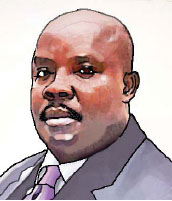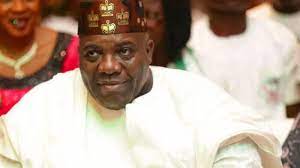By Emeka Alex Duru
(08054103327, nwaukpala@yahoo.com)
Every country or nation has a watershed in its history. This may be the date of political independence or any other momentous occasion in its life. For Nigeria, October 1 and the 1967-1970 Civil War are two events that stand out in its march to nationhood. The question however is how far we, as a people, have learnt from the two. We will come back to this.
Exactly 61 years ago, Nigeria gained her independence from Britain. Each time I recall the puzzle of nostalgia and regrets on the face of one of the foot soldiers of the march to freedom, late MCK (Melie Chukelu Kafundu) Ajuluchukwu, while recounting their excitement on Nigeria’s independence on October 1, 1960, and what turned out of the country later, I experience a feeling of void.
MCK, an accomplished journalist, had in a session in his Shomolu, Lagos residence, presented a touching report of the dreams of the founders of modern Nigeria, especially their vision of a giant enterprise that would champion and protect the cause of its citizens and indeed, the black man all over the world.
Guided by the attractive visions, the forebears, leading thousands of youths and even the elderly who provided the raw energy and verve for the nationalistic struggle, thronged the Lagos Race Course (Tafawa Balewa Square) hours before mid-night of September 30, 1960 to herald the birth of a new nation.
By 12.00 AM, the lights in the arena went off. When they were turned on, a new era had dawned. Nigeria had become independent. The Green-White-Green National Flag had taken the position of the British Union Jack. MCK lacked appropriate words to explain the euphoria that seized him and others at the event.

For a country that was seen as an emerging leader in the continent on account of its rich human and material endowments, the celebration was not out of place. But when asked to make an assessment of the journey so far, MCK, the old war horse, bowed his head in regrets and uttered; “What people are pursuing now are not the things we fought for. These were not the programmes of things that we had in mind while fighting for independence”. He belonged to the class of Nigerians that died with the pains of a beautiful dream they had for the country being bungled.
There is no how we can discuss Nigeria’s path to its present piteous state without mentioning the ignominious role of its successive leaders. Chinua Achebe, in ‘The trouble with Nigeria’, was right that “the trouble with Nigeria is simply and squarely the failure of leadership”, adding “There is nothing basically wrong with the Nigerian character. There is nothing wrong with the Nigerian land or climate or water or air or anything else. The Nigerian problem is the unwillingness or inability of its leaders to rise to the responsibility, to the challenge of personal example which are the hallmarks of true leadership”.
For Daren Acemoglu and James Robinson, authors of the encompassing book, ‘Why Nations Fail’, the most common reasons why nations fail is because of parasitic political and economic classes. Nigeria has had this extractive elite over the years. For them, what matters is what they derive from the system, not what they add to it. In doing this, they hold the people down, incapacitate them and make them beholden to then in a master-servant relationship.
In a curious version of Josef Stalin’s defunct Union of Soviet Socialist Republic (USSR), Nigerian leaders have exploited this debilitating lethargy on the part of the people and have used it to make nonsense of them. For the record, Stalin was the General Secretary of the Communist Party of the Soviet Union’s Central Committee from 1922 until his death in 1953.
Ordinarily lacking in charisma, he was good at intrigues and deceit with which he factored himself into the inner circle of the Bolshevik hierarchy, in the years following the death of Vladimir Lenin in 1924, and rose to become the leader of the Soviet Union.
There are running stories on Stalin’s strategies in manipulating his country men and women. In one instance, he was said to have gathered members of his Politburo (ruling council), where he presented a fowl that he had plucked off its entire feathers before them.
Thus incapacitated, the chicken could not fend for itself. But in a ridiculous manner, Stalin, began to throw some corns before it and naturally, the poor chicken fell for the show. After the gory display, Stalin was said to have told his audience that the lesson in the whole thing was that to get the people by their side and commandeer their loyalty, they needed, first of all, to be emasculated and disempowered. That was one in his bizarre theories of leadership.
Nigerian leaders seem to have bought into this absurd practice. And the people have fallen in, perhaps, unwittingly or not having any choice. This is why, 61 years of statehood, Nigerians do not have much to enthuse on. From the position of a leading economy in Africa and British Commonwealth, the country is today, the poverty capital of the world, and the national currency, the Naira, depreciating on daily basis. With collapsed infrastructure and insecurity in all parts of the country, life is fast losing its meaning in Nigeria. For four years running, Nigeria has been ranked alongside Iran and Afghanistan as the world’s most terrorized nations.
Unity has eluded us increasingly. Ethnic rivalry is on the rise. Not even the bitter experience of the Civil War, has taught the leaders any lessons. At the end of the war, we hastily proclaimed the principles of reconciliation, reconstruction and rehabilitation but did not put them into practice. This accounts for why in some parts of the country, particularly in the larger East that constituted the defunct Biafra, relics and memories of the war still linger.
In other zones, there are equally tales of lapses, resulting in the widening unemployment rate among the youth. Thus abandoned, they easily become willing tools for mischievous minds in the country. Some take to terrorism, robbery, assassination, kidnapping and other crimes. In the end, everybody loses. No nation survives on this trajectory.
The way out, is therefore to return to the basics. 61 years after independence, is a long period for any serious nation to get its bearing. But since that has not been done, there is nothing wrong to start afresh. It is for the leaders to get their priorities right and set the pace, while the followers key in. Happy Independence Day!













